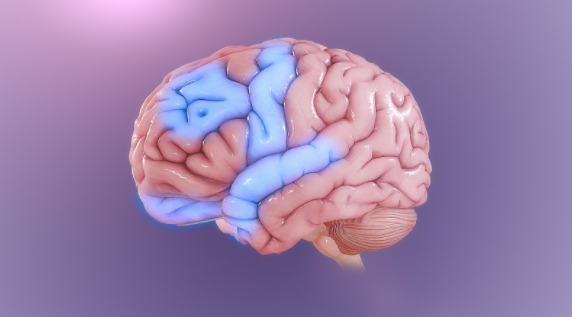Living with OCD
OCD is more than just being a “neat freak.”

ShareAlike 4.0 International – Creative Commnons
Popular culture gives us a flawed view of OCD. It’s a lot more complicated than being a “neat freak.”
February 5, 2021
Editor’s Note: Mentions of eating disorders, anxiety, and obsessive compulsive disorder. Reach out to the LFHS Support Staff if you are concerned about your own well-being or well-being of others.
For the longest time, I thought of having OCD as nothing more than being a neat freak or afraid of germs, and for good reason. Films like The Aviator and TV shows like Monk have all portrayed people with OCD as either obsessive germaphobes or perfectionists. While these are not total lies, they aren’t the entire truth either. Media like this tends to perpetuate this idea that OCD is one thing and that it only manifests in a specific way.
This is entirely untrue. It’s a myth that has been very prevalent in society, and while only 2% of the general population have OCD (according to the NIH). These myths still alienate those with OCD, especially those who are undiagnosed.
To understand why these myths have come about, it’s important to know what OCD is at its core. OCD stands for “Obsessive-Compulsive Disorder.” The American Psychiatric Association defines it as “a disorder in which people have recurring, unwanted thoughts, ideas or sensations (obsessions) that make them feel driven to do something repetitively (compulsions).” The essence of OCD has nothing to do with what someone obsesses over, but rather how that obsession manifests. OCD is not an adjective. It is not something to throw around when trying to describe yourself as a “neat freak.”
I have been struggling with OCD for a very long time, but I was only diagnosed when I was 15. The diagnosis confused me at first, because of the stigma that every person with OCD is very organized and clean. This did not fit my description whatsoever. But as I met more and more with my therapist, social worker, and psychiatrist. I learned what OCD is, and which parts of my struggle with mental illness can be attributed to that.
There are subsets of OCD, different categories that describe the obsession a person suffers from. I personally have Health OCD, COCD (Contamination OCD), and ROCD (Relationship OCD).
Health OCD has to do with the obsession that each feeling that I have in my body – e.g. a pain in my shoulder – may indicate that I have serious health issues. Many different diseases/ailments will run through my head, the scariest of which being something like cancer.
Now although a pain in your shoulder is usually an indicator that you might have just pulled something or bumped it too hard. OCD makes me obsess over the fact that that bump might be something more, however unlikely. I often worry that I might die, no matter how minuscule this pain might be. Along with that are the compulsions, compulsions are temptations people with OCD do to ease the anxiety that come with obsessions. These compulsions are not healthy and often just add more stress. For example, I might see the doctor multiple times, go to specialists, get X-rays, etc. Even though each test will tell me that I’m fine, I continue to search for some indication that something more serious is happening in my body.
The other subset of OCD I have is COCD (Contamination OCD). This is the kind of OCD that everyone talks about. However, the severity of it is still not quite understood. COCD can manifest itself in many different ways. For me, it comes when I’m doing something like the dishes or taking the garbage out. If my hands get anywhere near something like old food or trash, my obsession will tell me I have to wash my hands. If I don’t listen to that temptation, then I psych myself into thinking that I am contaminated with something or will contaminate others.
The most common compulsion is washing your hands anywhere from five to twenty times a day. This compulsion eats up large parts of my day, and some days I can’t go out anywhere unless I’m satisfied with how I’ve washed my hands. properly washed my hands. If I have to leave a place without having washed my hands, then everything I touch – my phone, food, doorknobs – will feel as if they’ve been contaminated.
My compulsions have often led to disordered eating, which I have struggled with for a long time. Worry that my food will make me sick, because I or other people handling the food, might not have washed their hands to my obsessive standards. Before I got proper treatment, this caused me to skip meals entirely and keep a very limited diet. I got myself to a dangerous level of skinny, and it was all because of this one obsession. Pile that on with the multiple other obsessions I have, my day to day life can get stressful. The worst part about it is that it’s nobody’s fault.
OCD has never been something I counted as a blessing, it’s never something I wanted. But I have it, and all I can do to remedy it is through standard OCD treatment. I am lucky enough to know that I have OCD, not everyone has something to attribute all their worries and fears to. Some teens have no idea what is wrong with them, and when we perpetuate this idea that OCD is one thing and nothing else, undiagnosed teens might not have any idea what is going on with them. A lot of the time they think they’re going crazy.
I was compelled to share my story -although there is much more to be said – to help anyone who might be going through something that they can’t explain. OCD awareness is important and it needs to be something everyone learns about. The risk of death by suicide for patients with OCD is ten times higher than that of the general population.
This mental illness can kill, and in my opinion, it needs more attention. Proper, educated attention. OCD does not define me nor should it be my sole defining characteristic. OCD is not something that I chose to have. It’s just a burden that I and many others have to live with.







Tegan Heswall • Feb 5, 2021 at 2:10 pm
Really proud of you for sharing your story <3